
Tomba dei giganti, Passcaredda, Sardinia
We are the ancestors returned. The ones they dreamed into being. The ones who carry their burdens, their wounds, their victories, their gifts, and the power to repair what must be changed.
In the Roman tradition, February’s cycle of Parentalia, Feralia, and Caristia offered a way to reckon with, release, and repair our ancestral ties. A sacred rhythm of remembrance, accountability, and love.
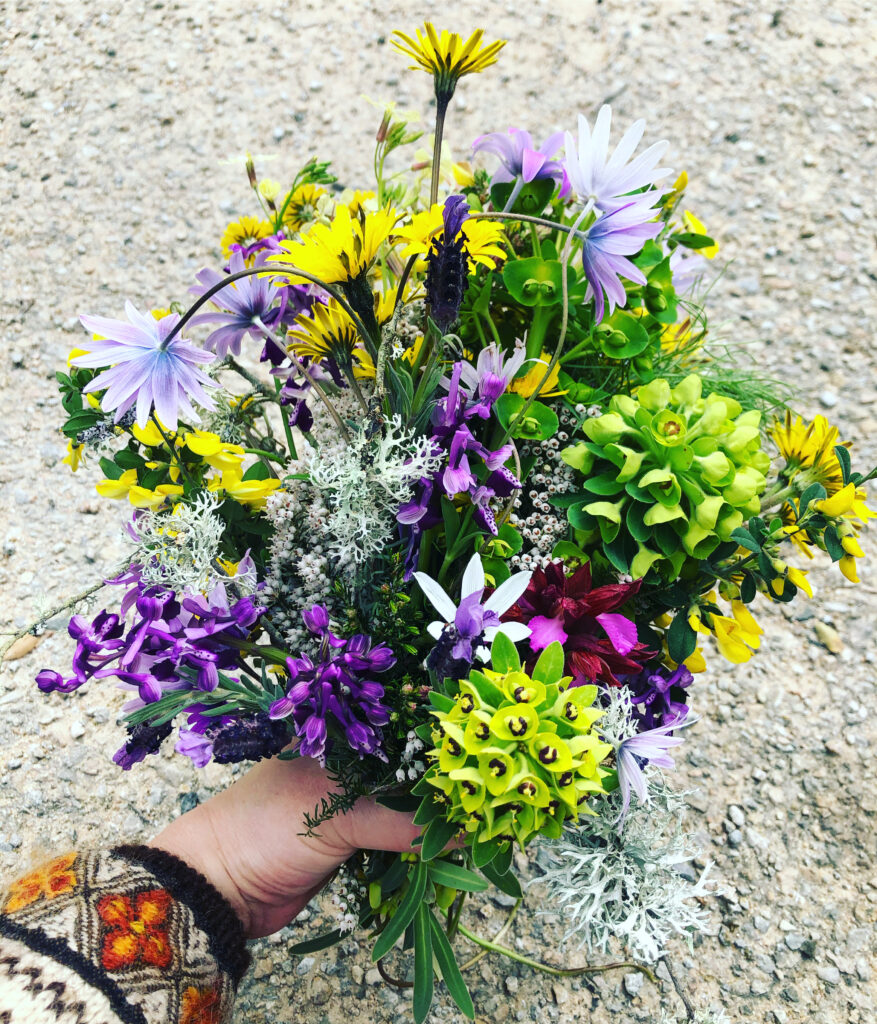
Sardinian Spring Bouquet
🕯️ Parentalia: Honoring the Beloved Dead
Parentalia begins on February 13th, as a nine-day period of ancestor veneration where Romans visited the graves of their kin, offering simple, heartfelt gifts of bread soaked in wine, salt, and violets. These were not grand feasts but small, steady acts of devotion.
A moment to say: I remember you. I carry you forward.
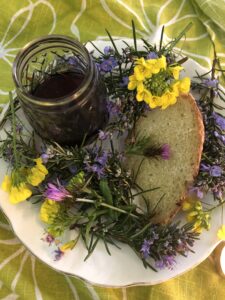
Parentalia offering
Most of us have ancestors who hold us with wisdom and love. These are the ones whose strength lives in our bones, whose guidance still whispers through our blood. Parentalia reminds us to tend to those relationships—to feed them, to keep them close.
But the cycle does not end with the beloved dead.
💀 Feralia: Reckoning with the Hungry Ghosts
On the night of February 21st, the ritual of Feralia was held to acknowledge the Manes, the restless, hungry ghosts. These are often the recently dead or the troubled souls who still linger close to the living, sometimes in unhealthy ways.
We all love the idea of ancestral work when it means connecting to the bright and helpful ones. But what about the others?
What about the ancestors whose actions still ripple harm into the present? The ones shaped by ideologies we now reject? The ones who caused suffering, or the ones who suffered so greatly they could not move forward?
It would be easy to turn away. But the work of the living is to reckon with what we’ve inherited, to redirect the momentum of our lineages.
Romans recognized that not all their departed family could cross over into Hades, and therefore needed to be acknowledged and helped along.

In another ancestral festival, held in mid-May, Lemuria, there was a ritual to help move unwanted spirits from lingering in the homes of their living relatives. Spring water was offered to them to quench their thirst, and black beans were thrown out the door by the head of household in offering. It was believed that the ghosts would take interest gathering the beans, and, therefore, leave their loved ones alone.
But, Feralia doesn’t just ask us to acknowledge our flawed ancestors—it asks us to look within.
Because we, too, carry shadow. We, too, live within systems and take actions that future generations will condemn. Just as we look back on our ancestors’ flaws and blind spots, so too will our descendants look back on ours.
This is why we do this work. It’s not just for those who came before but for ourselves and those who will come after. To break patterns. To recognize where we hold harmful thoughts, actions, and biases. To bring those shadows into the light, not to be consumed by them, but to consciously choose how we move forward.
We ignore the hungry ghosts at our own peril. Shadow, unacknowledged, will find its own way to make itself known. Feralia is a moment to say: I see you. I acknowledge you. But I do not carry you forward.
And then, Caristia comes.
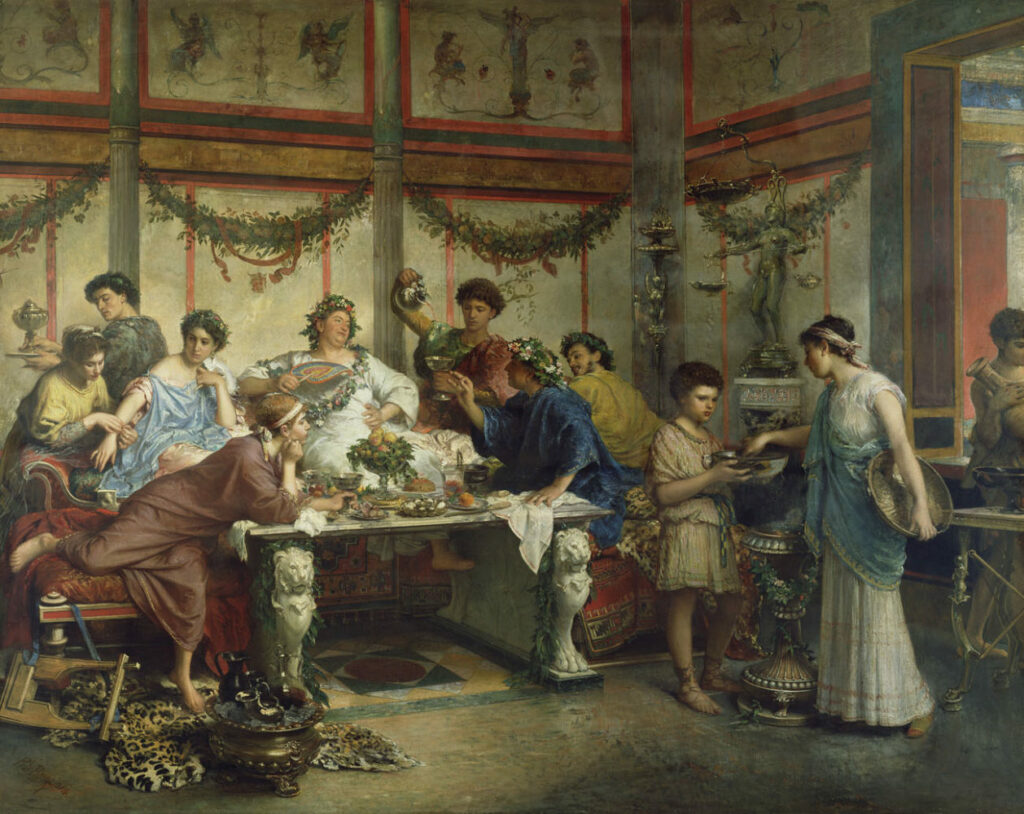
A Roman Feast; Roberto Bompiani (Italian (Roman), 1821 – 1908); late 19th century; Oil on canvas.
🍷 Caristia: The Feast of Love & Kinship
The day after Feralia, Romans gathered for Caristia (Cara Cognatio)—a feast of the living. It was a day of reconciliation, family unity, and setting aside past grievances. A day to say: This is who remains. Let us forgive. Let us nourish one another.
This feast was to reaffirm the bonds that sustain us. And the meal mattered. Romans ate simple, comforting foods—things meant to be shared, things that carried warmth and sweetness.
This year, I invite you to honor the full arc of this journey—our ancestors, ourselves, and our descendants—with something sweet and meaningful to share.
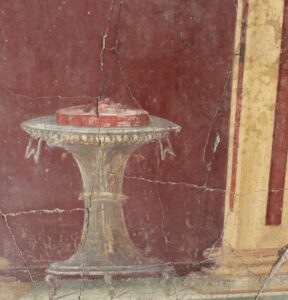
Roman Fresco- “Cassata di Oplontis”.
🍯 Honey & Almond Cakes for Caristia
A simple, ancient Roman-inspired treat to share with others as we close this cycle with love.
Ingredients:
🍯 1 cup ground almonds
🍚 1/2 cup spelt flour (or any flour you have)
🍯 1/3 cup honey (plus more for drizzling)
🧈 2 tbsp melted butter (or olive oil)
🥚 1 egg (or flax egg)
🧂 A pinch of salt
🍋 Zest of one lemon
Method:
- Preheat oven to 350°F (175°C).
- Mix all ingredients into a sticky dough. Shape into small rounds.
- Place on a parchment-lined tray and bake for 12-15 minutes until golden and fragrant.
- Drizzle with warm honey before serving.
Offer one to your ancestors, share one with someone you love, and keep one for yourself as a reminder: We are the ones who must choose what is carried forward and what is left behind.
Related Posts:
5 Ways to Start Building Ancestral Legacy Today
Valentine’s Day’s Ancient Roots (& Honey Hazelnut Semifreddo)
All of these articles on my website are created with the support of the Old Ways for Modern Days Resource Library subscribers, hosted on Patreon. If you enjoy these articles, consider becoming a member and gain access to a full library of resources, including monthly seasonal guides, sacred foods booklets, guided rituals, seasonal recipes, menus, and more! Check it out here!

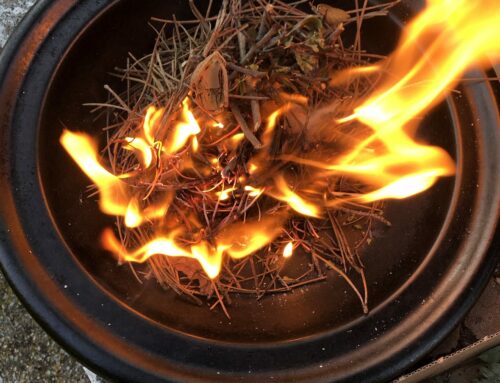
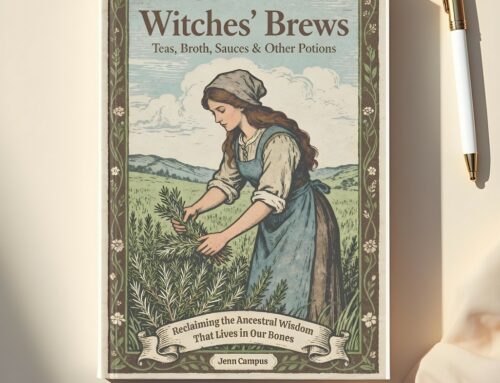
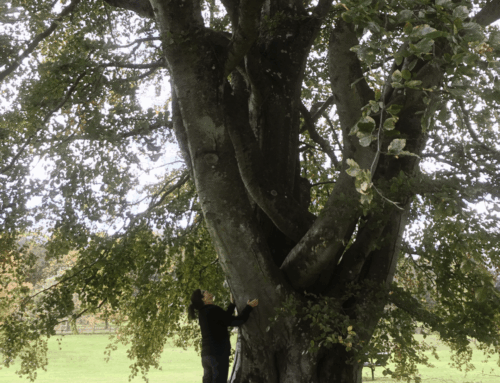
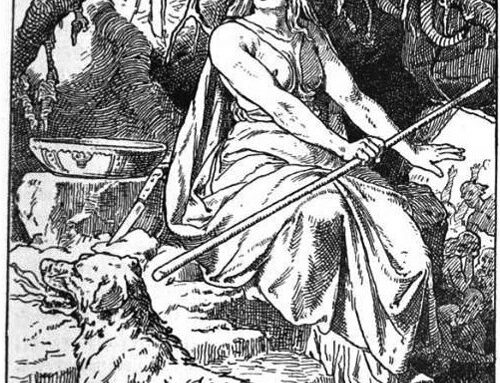

Leave a Reply